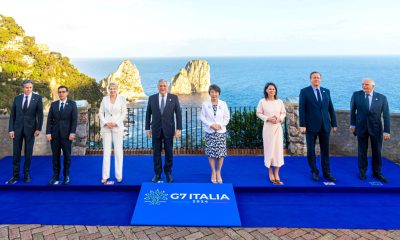Năng lượng
#EUAuditors kiểm tra sản xuất gió và #SolarPower


The European Court of Auditors is conducting an audit to determine whether EU and member state support for electricity generation from wind and solar photovoltaic (PV) power is effective.
Electricity generation is the sector with the highest consumption of energy from renewables. Wind and solar PV are currently the two main sources of renewable energy used for this purpose and are on the brink of becoming the two cheapest forms of electricity production.
The auditors will analyze the design, implementation and monitoring of EU and national strategies for wind and solar PV from 2009 onward and also EU and national funding for their development.
“Wind and solar PV are the two renewable energy sources for the production of electricity that have been developing by far the most dynamically over the past ten years,” said George Pufan, the member of the European Court of Auditors responsible for the audit.
“They play a vital role in our energy mix and it is very important to understand if the strategy and support for them are effective.”
In the 2014-2020 programme period, €45 billion from all European Structural and Investment Funds is earmarked to support the shift to a low-carbon economy, including investments in renewable energy, energy efficiency and sustainable urban mobility. Another €58.5bn has been set aside for smart energy transmission, storage and transport systems. The auditors will visit four member states: Germany, Greece, Spain and Poland. The audit report is expected to be published early in 2019.
Renewable energy sources are defined as those that can be replenished in a human lifetime, contrary to fossil sources - such as coal, uranium, petroleum and natural gas - which are finite. Renewable energy can be produced from a wide variety of sources including hydro, solar, wind, biomass, waste, wave, tidal and ocean and geothermal. By producing more renewable energy to meet our needs, the EU lowers its dependence on imported fossil fuels and makes its energy production more sustainable. The estimated contribution of renewable energy to fossil fuel import savings in 2015 was €16bn and it is projected to be €58bn in 2030.
Chia sẻ bài viết này:
-

 Thuốc lá4 ngày trước
Thuốc lá4 ngày trướcTại sao chính sách của EU về kiểm soát thuốc lá không hiệu quả
-

 Trung Quốc-EU4 ngày trước
Trung Quốc-EU4 ngày trướcChung tay xây dựng một cộng đồng chia sẻ tương lai và tạo ra một tương lai tươi sáng hơn cho quan hệ đối tác toàn diện Trung Quốc-Bỉ cùng nhau hợp tác thân thiện
-

 Ủy ban châu Âu4 ngày trước
Ủy ban châu Âu4 ngày trướcViệc di chuyển không hoàn toàn tự do đến Vương quốc Anh dành cho sinh viên và lao động trẻ
-

 Trung Đông4 ngày trước
Trung Đông4 ngày trướcPhản ứng của EU trước cuộc tấn công tên lửa của Israel vào Iran đi kèm với cảnh báo về Gaza

























